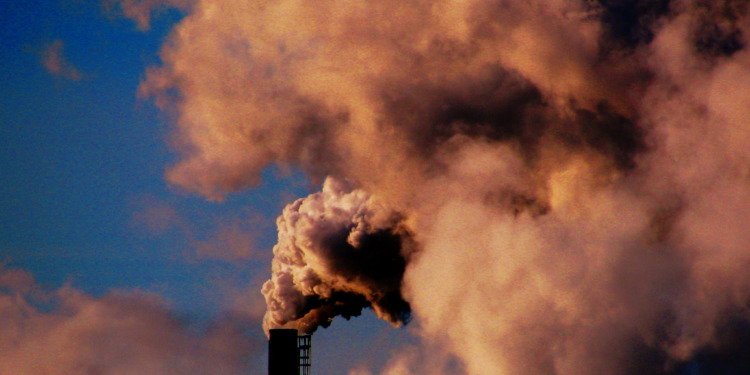Following a long night of negotiations, a provisional deal on the Carbon Border Adjustment Mechanism (CBAM) was reached between the EU Council and European Parliament yesterday.
This first-of-its-kind deal, which forms part of a group of measures designed to cut EU emissions by 55% from 1990 levels by 2030, will impose a carbon tariff on goods imported into the EU, ensuring that the carbon price of imports is equivalent to that of domestic production.
Since companies within the EU are already required to buy permits from the EU carbon market to account for their GHG emissions, this legislation will support European industries as they decarbonise by protecting them from being undercut by companies importing goods from countries with weaker environmental rules.
The highest polluting products of steel, iron, cement, aluminium, fertilisers, electricity, and hydrogen will be targeted by this mechanism initially.
Importers of these products will have to declare emissions directly linked to the production process, and purchase an “emissions certificate” if they exceed EU standards. The cost of this certificate will vary in relation to the price of CO2 within the EU.
In short, this deal would mean that countries and businesses that are not aligned with the EU’s climate ambition will either need to invest in cutting their emissions, or pay a potentially heavy price in exchange for these “CBAM certificates” if they wish to sell their goods within any of the 27 member states.
.@EUCouncil and @Europarl_en have reached a provisional agreement on the Carbon Border Adjustment Mechanism #CBAM, which targets imports of products in carbon-intensive industries.
Read the press release 👇https://t.co/sI0Ld1odEy
— EU Council Press (@EUCouncilPress) December 13, 2022
President of the European Commission, Ursula von der Leyen has described CBAM as “a central part of our European Green Deal, preventing the risk of carbon leakage.”
This “carbon leakage” occurs when EU companies move carbon-heavy production abroad to countries with less stringent policies, or when EU products are replaced by more carbon-intensive imports.
Relate Articles: Three-Quarters of World Governments Fail to Provide Transparent Data on Air Pollution | Europe Is Warming Twice as Fast as the Rest of the World
“It is one of the only mechanisms we have to incentivise our trading partners to decarbonise their manufacturing industry,” said Mohammed Chahim, EU Parliament’s lead negotiator on the law, who added that this mechanism is also a strategy for the enforcement of the EU’s “polluter pays” policy within the industry setting.
👏 This morning, the EU agreed to put a fair price on greenhouse gas emissions embedded in carbon intensive goods entering the 🇪🇺
⏰ Want to know more about the Carbon Border Adjustment Mechanism?
Check out our 60-second explainer below.#CBAM #EUGreenDeal @EUClimateAction pic.twitter.com/78MOuXc1PO
— EU Tax & Customs 🇪🇺 (@EU_Taxud) December 13, 2022
However, concerns have been raised regarding how this mechanism could negatively impact a number of countries already suffering greatly as a consequence of global warming.
Chiara Putaturo, Oxfam EU Tax expert, has referred to this deal as a way of “[passing] the buck to those least responsible [for climate change] by forcing them to pay a tariff despite being hardest hit by the climate crisis.”
As a form of reparations for the potentially disastrous implications of CBAM for many non-EU companies and nations, Oxfam is calling upon the EU to “channel CBAM revenues into additional climate finance for poor countries” and “provide an exclusion or exception period for poorer countries.”
➡️The declared aim of #CBAM is to prevent EU companies from moving their polluting activities to countries with lax environmental rules.❌The problem is that the poorest countries will also have to pay despite being the hardest hit by the #climatecrisis. https://t.co/MKv2r2qaKr
— Chiara Putaturo (@ChiaraPutaturo) December 13, 2022
There remains time for these alterations to be made, since the deal will undergo a final round of negotiations this weekend.
Once all aspects have been agreed upon, the European Parliament and Council will have to formally adopt the regulation before it can enter into force (as happened with the EU Corporate Sustainability Reporting Directive). Should this run smoothly, the test period for CBAM will reportedly begin October 2023, with the intention that the measure will be taking full effect in 2026.
Editor’s Note: The opinions expressed here by the authors are their own, not those of Impakter.com — In the Featured Photo: A large stack from the Sault Paper Mill. Featured Photo Credit: Billy Wilson.










